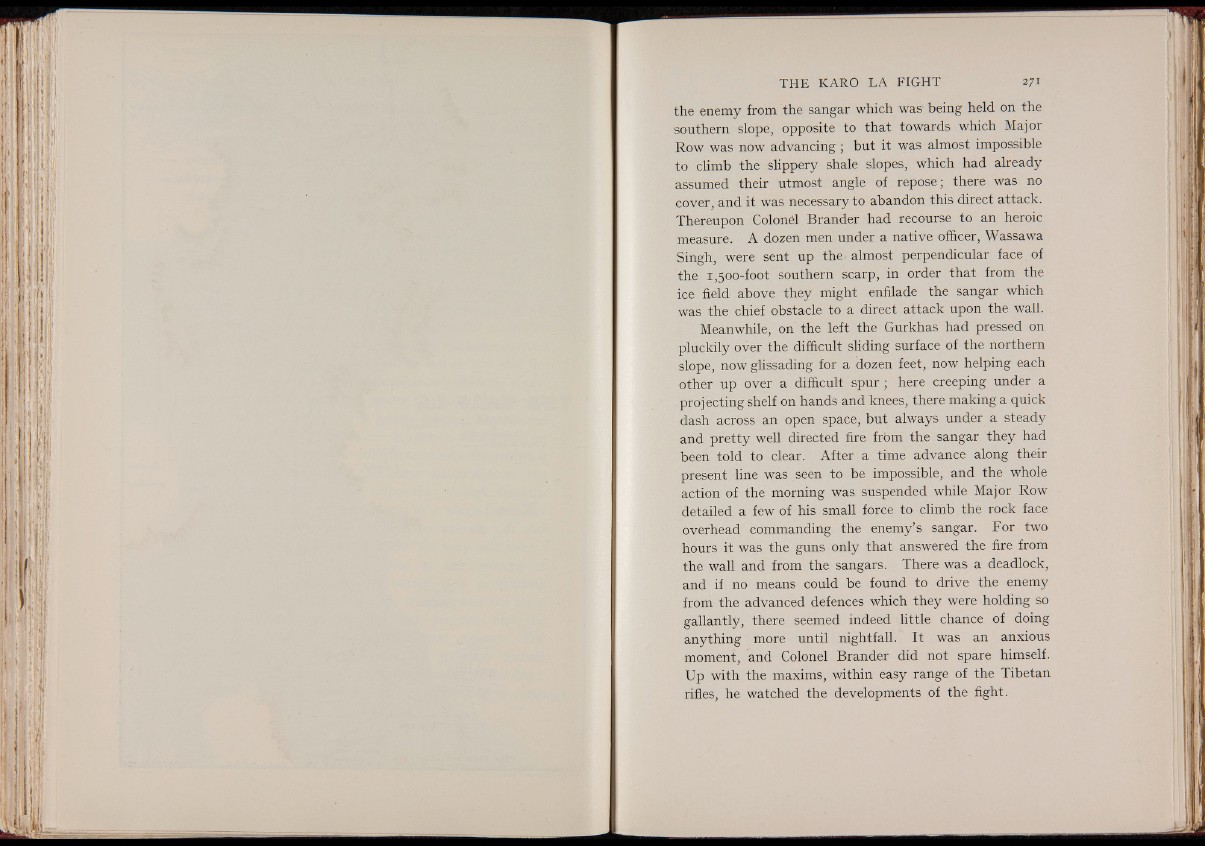
the enemy from the sangar which was being held on the
southern slope, opposite to that towards which Major
Row was now advancing ; but it was almost impossible
to climb the slippery shale slopes, which had already
assumed their utmost angle of repose; there was no
cover, and it was necessary to abandon this direct attack.
Thereupon Colonel Brander had recourse to an heroic
measure. A dozen men under a native officer, Wassawa
Singh, were sent up the-almost perpendicular face of
the 1,500-foot southern scarp, in order that from the
ice field above they might enfilade the sangar which
was the chief obstacle to a direct attack upon the wall.
Meanwhile, on the left the Gurkhas had pressed on
pluckily over the difficult sliding surface of the northern
slope, now glissading for a dozen feet, now helping each
other up over a difficult spur ; here creeping under a
projecting shelf on hands and knees, there making a quick
dash across an open space, but always under a steady
and pretty well directed fire frbm the sangar they had
been told to clear. After a time advance along their
present line was seen to be impossible, and the whole
action of the morning was suspended while Major Row
detailed a few of his small force to climb the rock face
overhead commanding the enemy’s sangar. For two
hours it was the guns only that answered the fire from
the wall and from the sangars. There was a deadlock,
and if no means could be found to drive the enemy
from the advanced defences which they were holding so
gallantly, there seemed indeed little chance of doing
anything more until nightfall. It was an anxious
moment, and Colonel Brander did not spare himself.
Up with the maxims, within easy range of the Tibetan
rifles, he watched the developments of the fight.